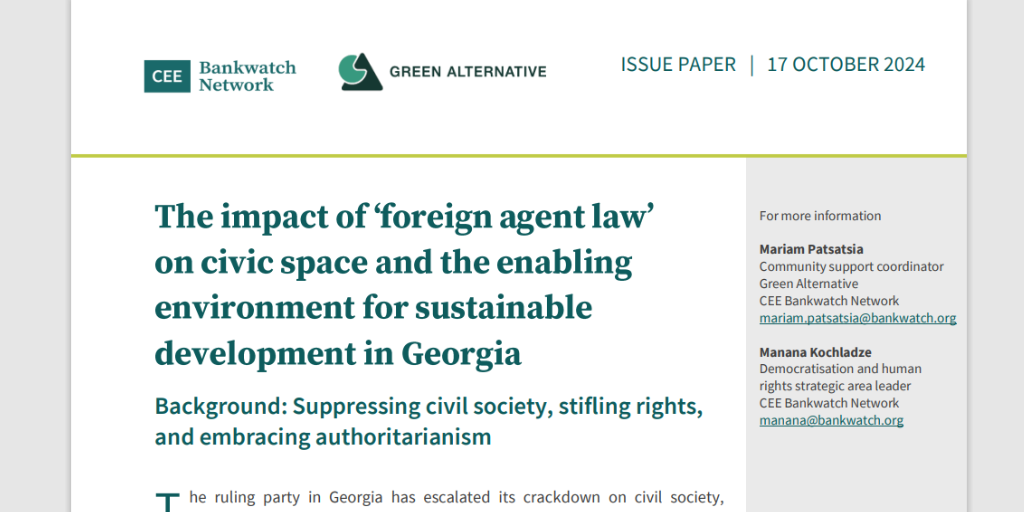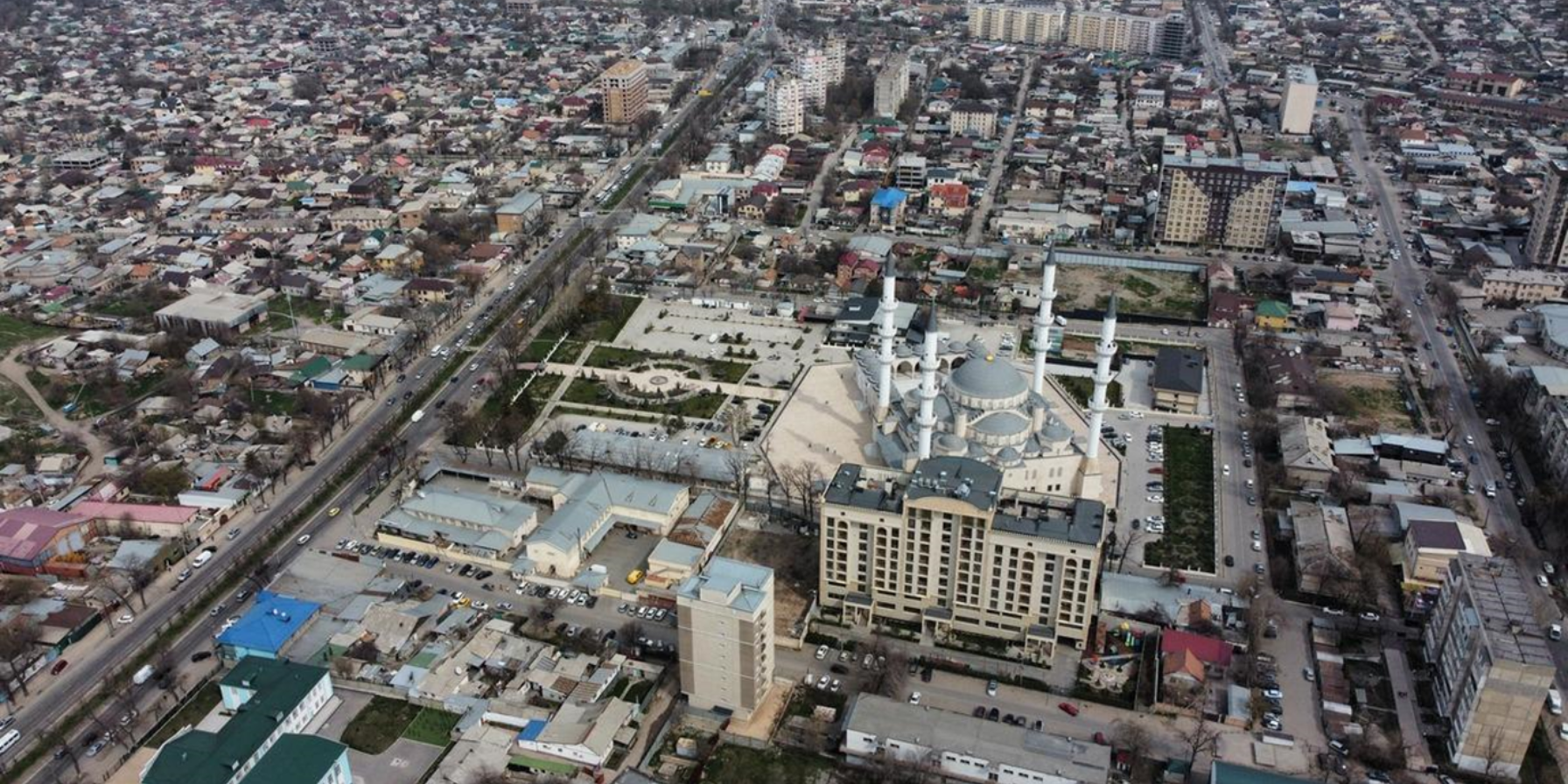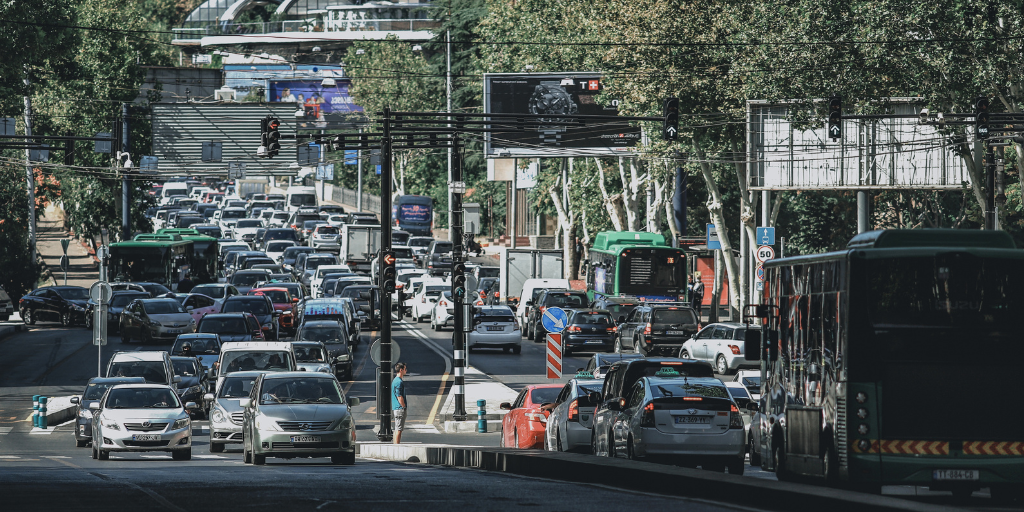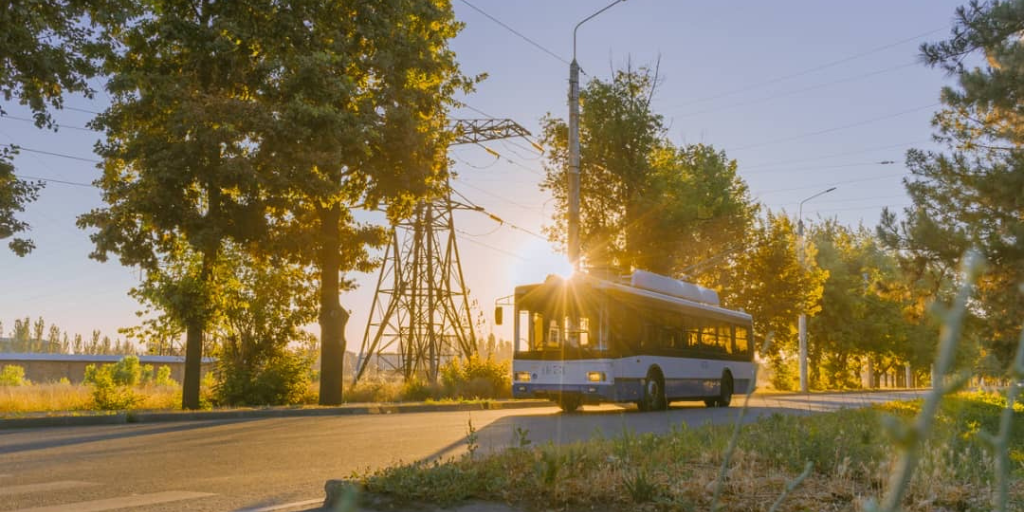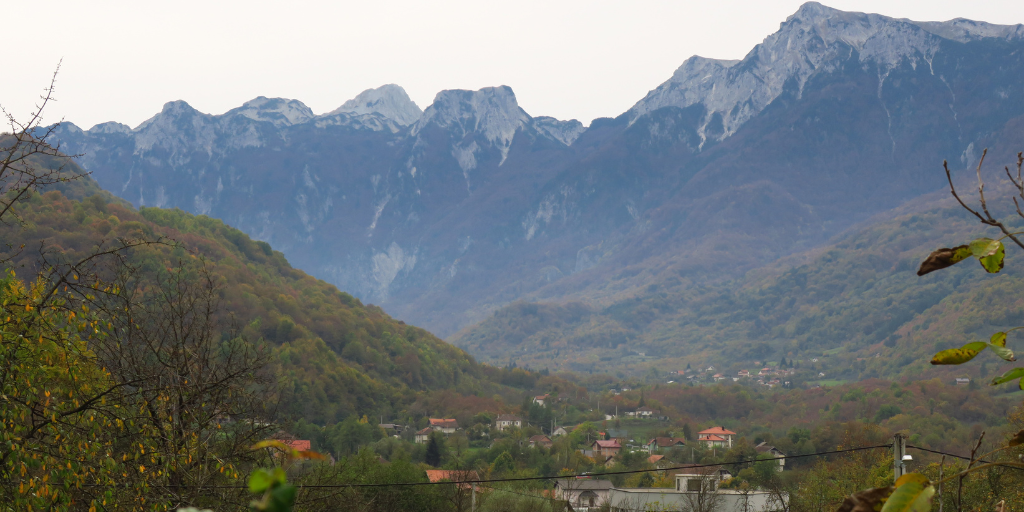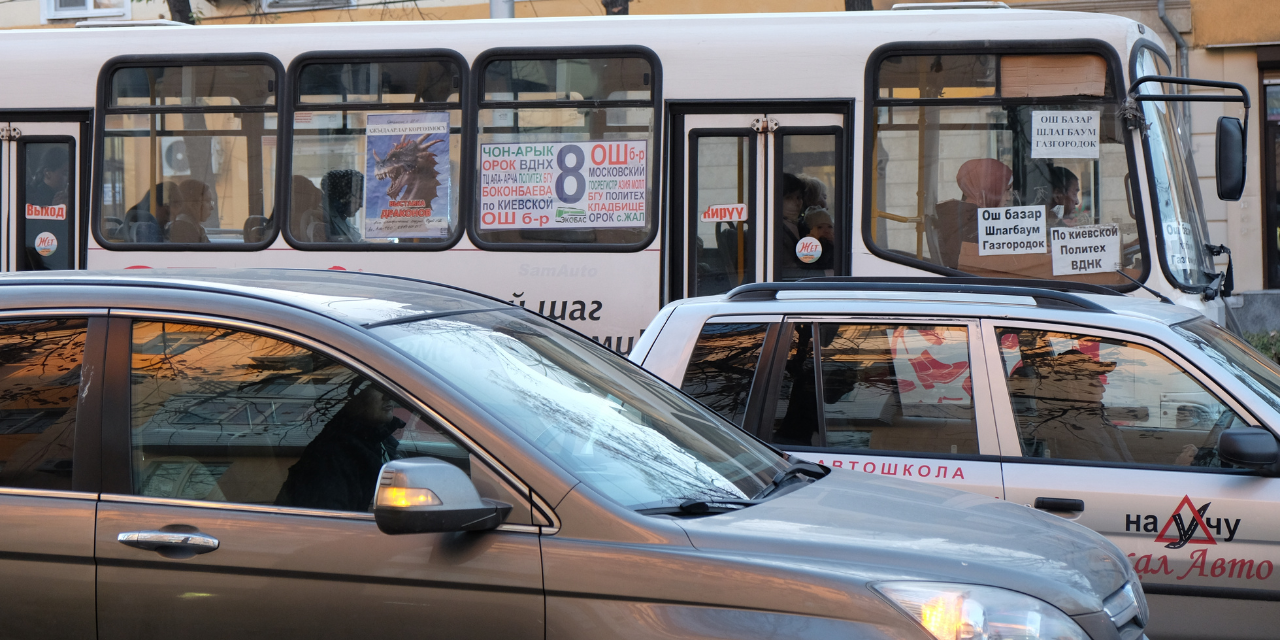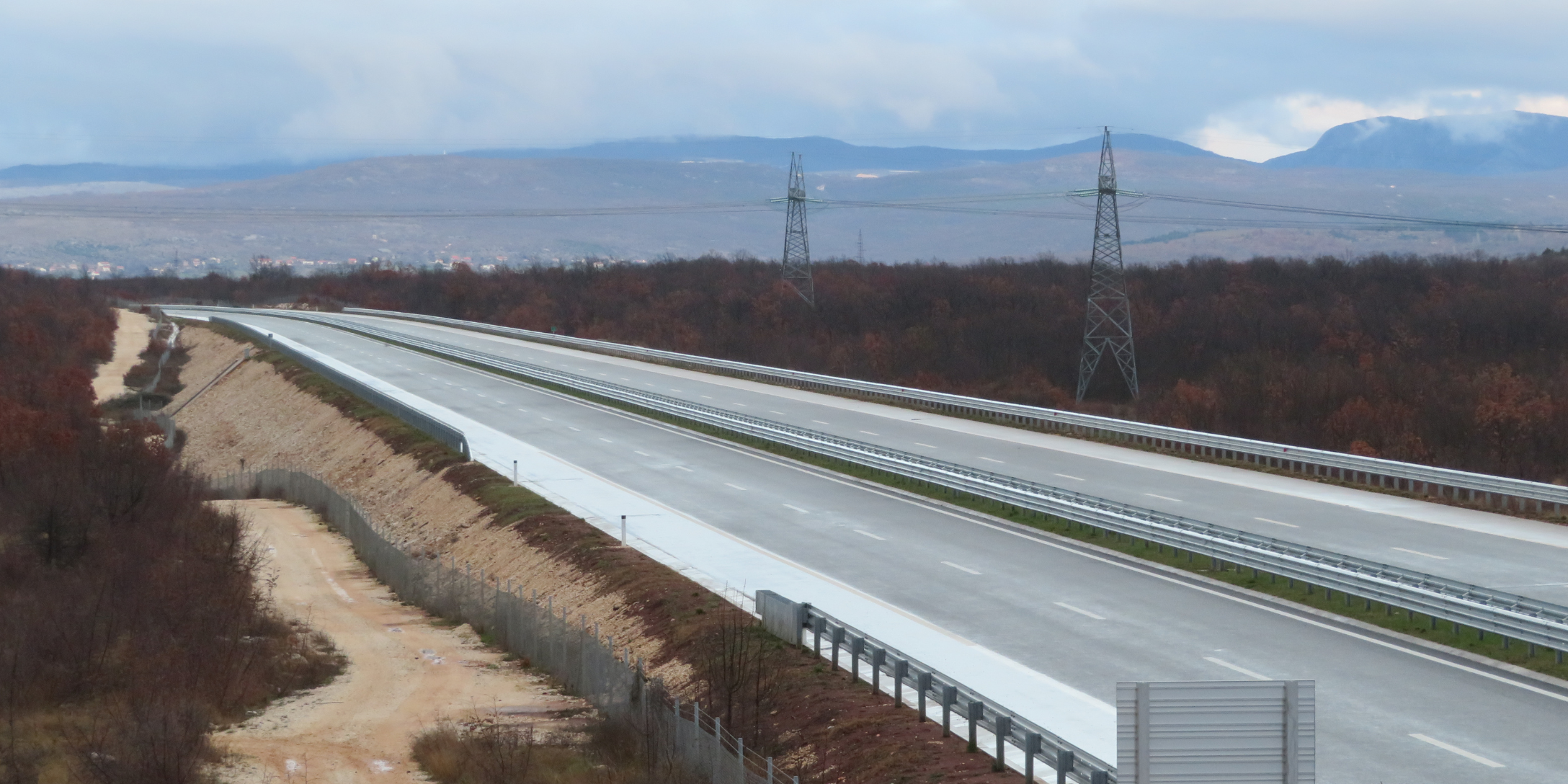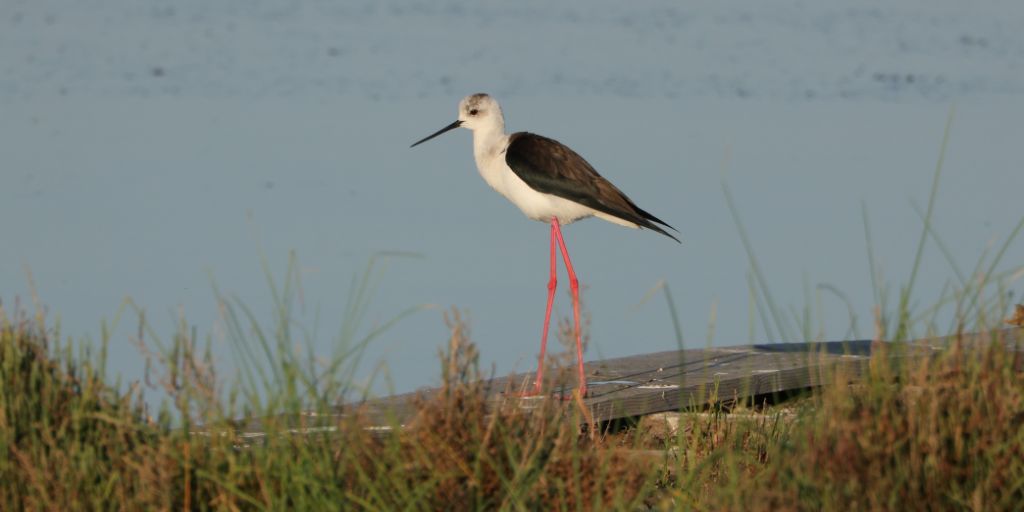Western Balkan cities: Pressure with no release
Publication | 24 October, 2024Using case studies from Belgrade, Sarajevo and Skopje, our report examines urban planning practices, the consequences of poor governance, and the need for sustainable infrastructure investment.
Read moreThe impact of ‘foreign agent law’ on civic space and the enabling environment for sustainable development in Georgia
Publication | 18 October, 2024This briefing outlines the current political situation in Georgia, detailing the government’s authoritarian shift and its implications for governance, economic stability, and sustainable development.
Read moreA flawed rollout: How the EBRD’s efforts to tackle harassment on Tbilisi public transport have fallen short
Blog entry | 11 October, 2024In an effort to tackle gender-based violence and harassment across Tbilisi’s public transport network, the EBRD has provided financial and technical support to Tbilisi Transport Company – the operator responsible for managing public transport services in the city – to help them set up a tracking system to address incidents on the city’s metro and bus routes.
Read moreBishkek’s sustainable urban mobility development: A review of current policies and investments with recommendations for enhanced transformative impact (long version)
Publication | 14 August, 2024As Bishkek’s population grows, public transport in the Kyrgyz capital is clearly lagging far behind demand. A new research paper, produced in collaboration with our Kyrgyz partners Peshcom, maps the situation of sustainable urban mobility development in Bishkek.
Read moreCEE Bankwatch Network comments on the draft of the EBRD Infrastructure Sector Strategy
Publication | 14 August, 2024The EBRD’s draft strategy, published in the summer of 2024, shows improvements particularly in terms of good governance, inclusion, safety, affordability, accessibility of municipal and transport infrastructure and services. In our new comments, we argue that more needs to be done to decarbonise and promote circular economy principles and sustainable waste management.
Read moreThe last trolleybus of Bishkek: mayor’s decision defies logic and undermines foreign investments in green transport
Blog entry | 19 July, 2024The Asian Development Bank (ADB) and European Bank for Reconstruction and Development (EBRD) need to investigate the impact of their public transport projects in Bishkek, Kyrgyzstan as the city’s urban mobility system gets a complete overhaul without transparency or public participation.
Read moreBosnia and Herzegovina: Environmental and social study for Prenj motorway tunnel needs to tackle the elephants in the room
Blog entry | 2 July, 2024The environmental and social impact assessment for the planned Prenj tunnel on the Corridor Vc motorway provides a wealth of details on some issues, but fundamental questions remain, particularly on the Bijela canyon Emerald site near Konjic and the Podgorani area near Mostar.
Read moreBishkek’s sustainable urban mobility development: A review of current policies and investments with recommendations for enhanced transformative impact
Publication | 26 June, 2024As Bishkek’s population grows, public transport in the Kyrgyz capital is clearly lagging far behind demand. A new research paper, produced in collaboration with our Kyrgyz partners Peshcom, maps the situation of sustainable urban mobility development in Bishkek.
Read moreBosnia and Herzegovina: Motorway-affected residents submit complaint to the UN
Press release | 24 June, 2024A group of people whose land and houses are threatened by the EU-funded planned Corridor Vc (1) motorway south of Mostar in Bosnia and Herzegovina have submitted a complaint to the United Nations Human Rights Council (2).
Read moreWhy and how the European Bank for Reconstruction and Development must improve its biodiversity standards
Publication | 24 June, 2024The EBRD’s Environmental and Social Policy is now undergoing revision and it needs not only to maintain the EBRD’s practices with regard to biodiversity, but also to significantly improve them.
Read more
